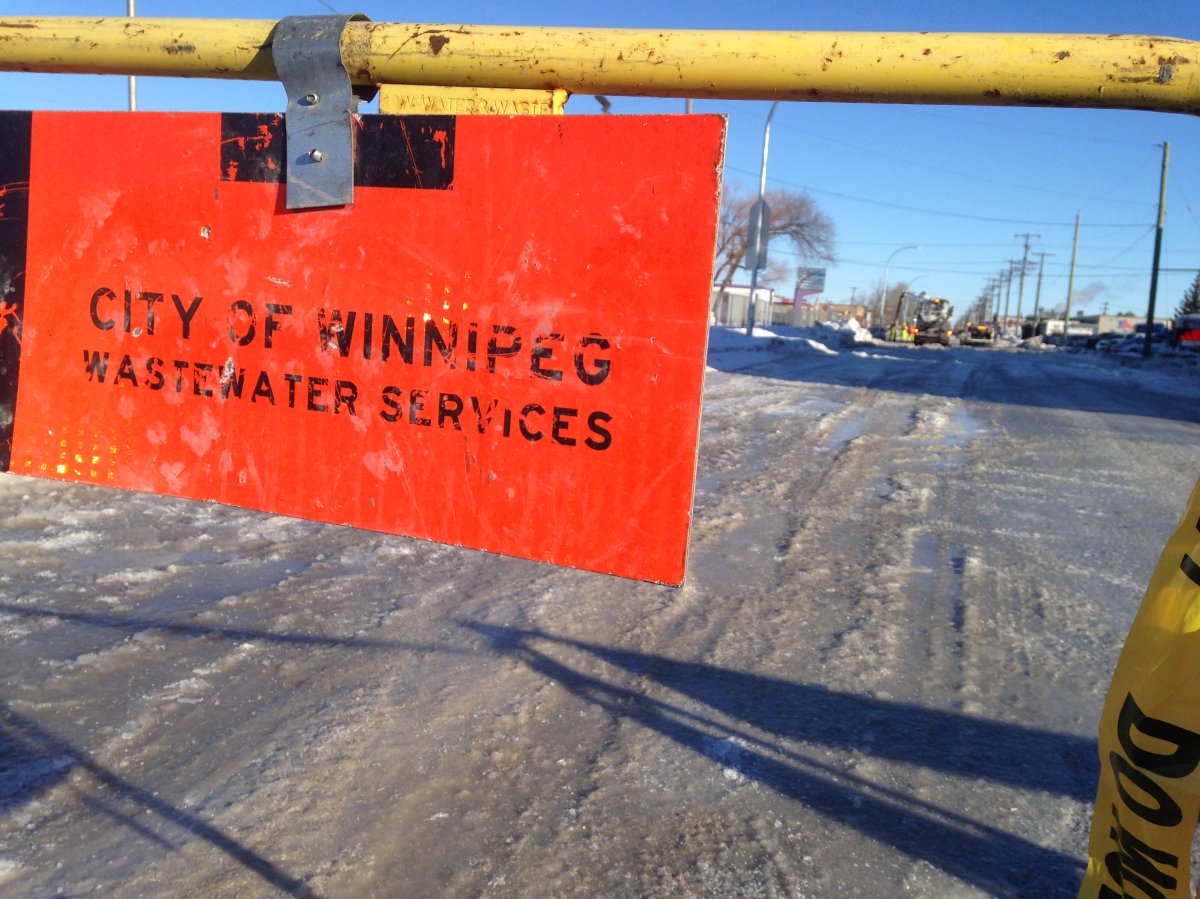City crews have seen a nearly 25 per cent drop in water main breaks in Winnipeg over the last three months of winter compared to the same time a year ago.

But the city says there’s really no rhyme or reason to how many breaks are seen every year.
“Sustained periods of extreme weather — either rain, dryness, or cold — can cause the ground to swell and contract, placing excessive pressure on the water mains, causing any weakened pipe to break,” a city spokesperson said in an email to Global News.
“Water main breaks can be caused by a number of different factors, including the condition of the pipe, soil moisture conditions, external corrosion of the pipe, and weather.”
From Nov. 1 last year to Jan. 31, the city says there’s been 81 water main breaks city-wide. Over the same period last year, there were 105, a drop of just shy of 23 per cent.
In total, Winnipeg saw 493 water main breaks last year, and on average, crews are called to one or two water breaks a day a year.
But that hasn’t always been the case.
In the 1980s, Winnipeg averaged 2,100 breaks a year, or about six a day. The worst year, 1983, saw 2,549 breaks, according to city records.
Water mains are underground pipes carrying water from reservoirs and pumping stations to city streets and in all, Winnipeg has 2,585 kms of them.
The city’s website says water main breaks are most commonly caused by external corrosion of pipes, and because Winnipeg soil is highly conductive, it corrodes metallic pipes from the outside in.
Then, when extreme weather changes happen, the ground swells and contracts, putting excessive pressure on the water mains, which causes any weakened pipe to break.
Contrary to what some may think, water main breaks are just as common in the summer as they are in winter, although cleaning up a winter break is more difficult.
Up to four city crews work seven days a week, 11 hours a day, are repairing water main breaks, leaking or broken valves, and broken services.
There’s also two crews in Emergency Services working seven days a week, 24 hours a day to respond to breaks any time day or night.
The city’s Water Main Renewal Program works to replace aging water mains with new PVC pipe, and roughly 12 kilometres of water mains are replaced every year.
–With files from Corey Callaghan
.jpg?w=1040&quality=70&strip=all)





Comments